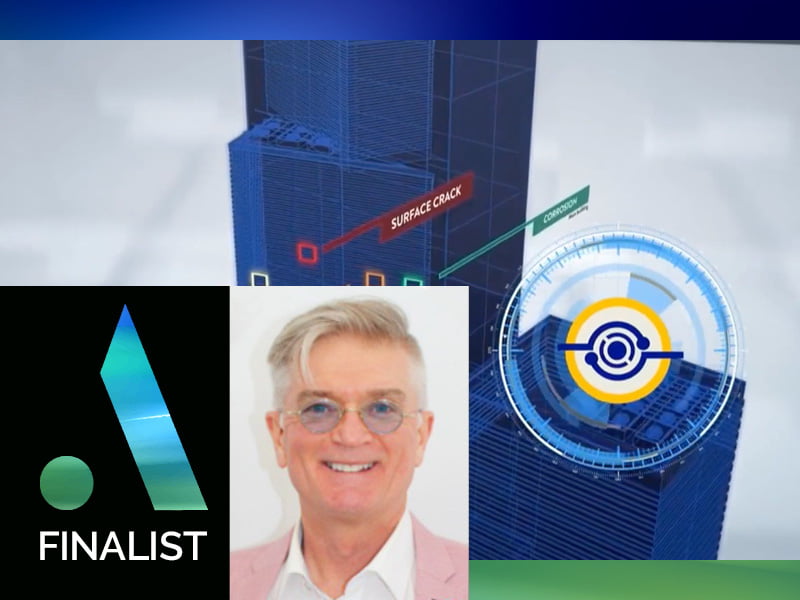The world of building safety assessments has been ripe for disruption for decades. Traditional methods of conducting building assessments have become unreliable, unsafe and expensive, and a number of companies have sought to modernise this process of detecting flaws in large buildings.
The answer seemed to lie with drones, but this has come with a number of significant limitations, mainly that these devices cannot be used in the dense urban areas – where building assessments are most important – due to air safety regulations.
Brisbane-based startup Voltin has found a solution to this, and has a product that brings building facade condition assessment into the 21st century.
Voltin is a finalist in the Creative Technology and Industry 4.0 categories of the InnovationAus 2023 Awards for Excellence and a great example of an Australian company solving global challenges. The awards will be decided at a Black Tie gala at the Hordern Pavilion in Sydney on November 1.
With co-founders that boast more than 40 years business experience each, Voltin has found a way to replace the existing low-tech manual building inspections with high-resolution visual data capture and AI-driven photogrammetry modelling software, using tethered drones which can be used in major cities.

The service can find previously unseen flaws and precise defect locations in buildings, such as cracks, corrosion and peeling paint, and can work on concrete, cladding, glass and metallic composites
It is currently the only company trying to solve this problem which has been approved by the Civil Aviation Safety Authority and Air Services Australia, in contrast to drone-based solutions.
Voltin has been entirely funded by its owners and has accesses support support from the federal government in the form of the R&D tax incentive.
The company has partnered with H3 Dynamics on its data processing capability, with Holovision and Emesent to develop LiDAR and Point Cloud modelling, as well as ARM Hub and the Queensland University of Technology.
It also has a strategic alliance with Sedgwick, a large insurer, risk mitigation and building consultancy firm, and the International Real Estate Partners.
For 15 years Voltin operated using industrial rope access methods, thermal imagers and handheld cameras to assess buildings, before looking to new technologies to make this process more effective, cheaper and safer.
After three years of experiments, the company released a prototype of the AUTOBAT 3.0 in late 2020.
Using Voltin’s platform, a client receives a digital assessment of their property. And using artificial intelligence and machine learning, an image analysis provides corrective action of the defects that have been identified and allows for digital twinning.
The company uses high-resolution camera systems, LiDAR sensors using geo-positioning software and photogrammetry software to match the capabilities of free-flying drones in urban areas.
Voltin has been internationally certified, and holds trademarks, business names, world mark and domain name registrations.
Do you know more? Contact James Riley via Email.
